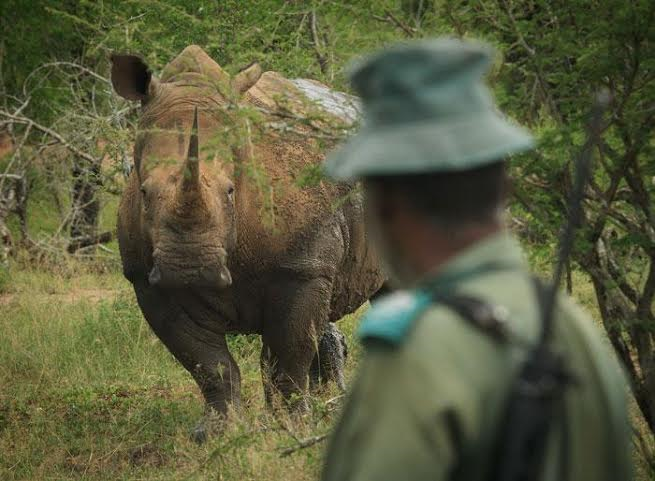China’s decision to ease its ban on elements of the domestic trade in rhino and tiger products will come under scrutiny at this week’s Conservation Symposium in the KwaZulu-Natal Midlands. Fred Kockott reports
First published by Daily News
The symposium brings together more than 300 conservation experts, representatives of environmental organisations and the government to seek solutions for the alarming rate of biodiversity loss, wildlife trade and crime, and other conservation issues.
The conference takes place in the wake of China’s announcement last week to legalise the trade in rhino and tiger parts, in certain circumstances, including scientific and medical research. Demand for rhino horn and tiger bone in Asian markets is partly driven by their supposed health benefits, from curing cancer to boosting virility.
The World Wildlife Fund (WWF) was among a plethora of organisations that responded to the Chinese announcement, raising concerns.
“It is deeply concerning that China has reversed its 25-year-old tiger bone and rhino horn ban‚ allowing a trade that will have devastating consequences globally‚” said Margaret Kinnaird‚ WWF wildlife practice leader.
Consequences
Iris Ho, senior wildlife programme specialist at Humane Society International, said the new rules could fuel illegal wildlife trade.
“With this announcement, the Chinese government has signed a death warrant for imperilled rhinos and tigers in the wild who already face myriad threats to their survival,” said Ho.
But others have welcomed the decision, including Pelham Jones, the chairman of the Private Rhino Owners Association. Private rhino owners in South Africa own more than 6000 rhino (about 37% of the national herd) and more than the rest of Africa combined.
Poaching
With over 30 years’ conservation experience, Jones argues the China’s previous ban on trade in rhino horn had actually “aided a massive, transnational illegal trade”.
He argues the income derived from the legal sale of rhino horns would substantially fund anti-poaching efforts in private reserves.
Giving background to China’s decision to reverse its ban, Qiao Xinsheng, a professor at Zhongnan University of Economics and Law, said the worldwide concerns about lifting the ban on trade in rhino and tiger parts were misplaced.
Revision
“The revision of the regulation is actually a move to better protect the two species. For instance, the version of the 1993 notice didn’t mention products made of tiger fur or tiger meat. And this notice announces a total ban on any illegal use or trade in such products, as well as the illegal medical use of rhino horns or tiger bones,” said Xinsheng in an article published by ChinaDaily.com.
“It specifically stipulates that only the horns from the rhinos in captivity, or the bones of dead tigers in captivity are allowed to be used for medical purposes under strict conditions,” said Xinsheng.
Divergent views
The chairman of this week’s Conservation Symposium, Ian Rushworth, said the conflicting views on the subject would create “lively debates” among delegates, as will today’s opening plenary which examines the ‘sustainable use’ of wildlife, including hunting as a conservation tool.
“It is important in finding a way forward to differentiate between opinion and facts supported by scientific evidence. This is part of what the conservation symposium will be exploring,” said Rushworth, a conservation services manager at Ezemvelo KZN Wildlife.
The debate begins
In an open letter, Dr Chris Brown of the Namibian Chamber of Environment argues that conservationists can grow rhino horn supply in a way that protects and conserves rhinos while harnessing economic opportunities. Click here to read more.
In an article for Daily Maverick, South African writer, investigative journalist, and photographer Don Pinnock, argues that the very officials in place in South Africa to protect animals at the source, were eyeing potential ‘brown envelope’ profits out of China. Click here to read more
https://www.dailymaverick.co.za/article/2018-10-29-selling-rhino-horn-its-time-to-ask-hard-questions-about-the-department-of-environmental-affairs/#.W9i9jm4S8LE.twitter
John Hume, the founder of the world largest private rhino conservation project believes China can help save rhinos. Click here to read more


The Conservation Symposium is a partnership between Ezemvelo KZN Wildlife, WILDTrust, University of KwaZulu-Natal, Environmental Law Association, Endangered Wildlife Trust, University of Zululand, and the Nature, Environment and Wildlife Filmmakers Guild.











